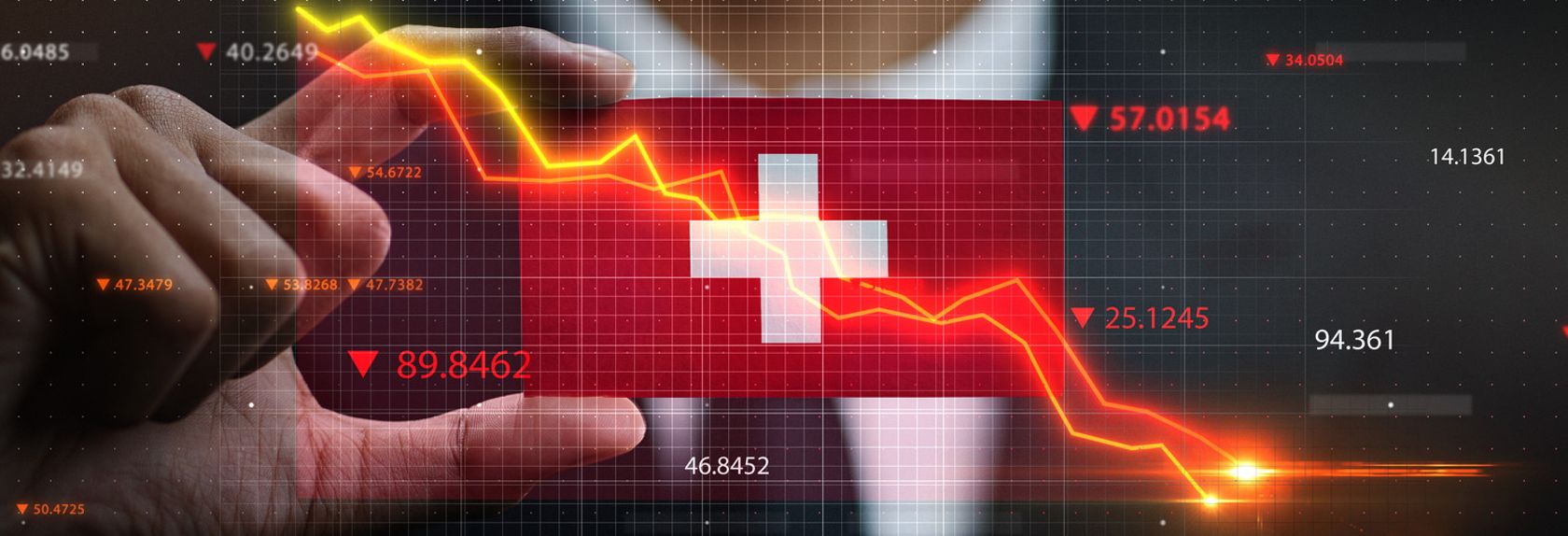 Generoso Perrotta, Head of Financial Advisory
Generoso Perrotta, Head of Financial Advisory
The situation will be closely monitored for any new elements that could worsen market sentiment. In the meantime, caution is suggested and not to increase exposure to Credit Suisse bonds.

'It will not be an easy operation." This is how Colm Kelleher, chairman of Ubs, commented, with a certain frankness, on his group's acquisition of Credit Suisse, the Swiss financial giant that has ended up on the brink of collapse in recent weeks. As anyone who has followed the most recent financial chronicles knows, Credit Suisse will be saved by a complex operation: there will be a merger with Ubs. The largest Swiss bank will thus incorporate its main competitor through an exchange of securities: one Ubs share for every 22.48 Credit Suisse shares held, for a total value of EUR 3 billion.
With this transaction, Credit Suisse shares are valued at just 76 centimes each, whereas last week they were trading at CHF 1.86 on the stock exchange. At the same time, the rescue envisages a massive intervention by the Swiss state with a CHF 25 billion fund to support the bank's restructuring costs and a public guarantee for any losses exceeding CHF 5 billion, as well as a buffer from the Swiss National Bank (SNB) that will guarantee all the necessary liquidity.
Here, then, is the sad epilogue to an affair that goes back a long way, as Credit Suisse's star has not been shining as brightly as before for at least three years. In 2020, an industrial espionage scandal led to the resignation of former CEO Tidjane Thiam. Then came the crash in 2021 of two subsidiaries: the British Greensill Capital and the US family office Archegos in which the Swiss group had invested billions upon billions. Then came the bankruptcy of the Bermuda subsidiary in 2022 and finally the collapse in 2023, when the bank delayed the publication of its 2022 financial statements as the US regulators (Sec) questioned the audits of the previous years' accounts. Meanwhile, the stock plunged on the stock market as the major shareholders of Saudi National Bank, 37% owned by the Saudi sovereign wealth fund, ruled out the possibility of putting new capital into Credit Suisse.
Now the last hopes cling to the rescue operation. "The acquisition of Credit Suisse by UBS, although it may have been necessary to calm a negative spiral in the Swiss financial sector, still presents several elements of uncertainty," comments Generoso Perrotta, Head of Financial Advisory at Banca Generali, who adds, "Firstly, possible changes to the plan in the coming weeks will have to be assessed. Secondly, the execution risk remains high. Analysts have pointed out that many details on how the integration will proceed are still missing, and the success of the deal will depend on these. Finally," Perrotta continued, "for UBS shareholders, the transaction will have the consequence of changing the investment profile from a growing bank with a focus on shareholder returns to a restructuring story, the first positive results of which are only expected in four years' time. In the short term, therefore, there could be downward pressure on UBS shares. Therefore, we reduce our rating on the bank from positive to neutral and recommend holding the stock if already in the portfolio, but not to buy or add new positions".
In addition to the bank's collapse, the Credit Suisse affair has caused discussion of the treatment suffered by holders of AT1 (Additional Tier 1) bonds, a particular category of bonds issued by banks, whose value has been completely wiped out. Holders of these instruments have therefore lost everything they invested, while holders of shares (which should by nature be the riskiest securities) are losing a lot, but certainly not everything they invested. "In a bank's capital structure, AT1s (Additional Tier 1) are the instruments with a higher degree of subordination than the other categories of debt," Perrotta explains, "they contribute to the regulatory capital (Tier 1) and can be converted to equity or written off when certain conditions arise (such as if the capital falls below a certain level)." However, Banca Generali's Advisor explains that "AT1s have, over time, been considered senior to shares. The reduction of Credit Suisse's AT1s to zero as a result of the bailout by UBS stems fundamentally from two factors: the first is that in the prospectuses of the Swiss banks' AT1s, the language allows for a permanent write down (permanent zeroing of the bond) while the prospectuses for the AT1 issues of many of the European banks provide for a temporary write down (temporary zeroing of the AT1s or conversion into shares); the second, is a political factor, i.e. the Swiss institutions prioritised the guarantee of savers, penalising the subscribers of AT1 securities, who will go to contribute in the coverage of the losses that the bank will have to bear."
"These events have influenced and will probably continue to influence the performance of the financial markets," Perrotta concludes, "however, the reassurances that have come from the authorities may help to reassure investors. The situation will be closely monitored to intercept any new elements that could worsen market sentiment. In the meantime, caution is suggested and exposure to Credit Suisse bonds should not be increased. The sale of existing positions, should they have been positively affected by the bailout announcement, should be considered, always with a view to prudence and diversification".
 Generoso Perrotta, Head of Financial Advisory
Generoso Perrotta, Head of Financial Advisory
The situation will be closely monitored for any new elements that could worsen market sentiment. In the meantime, caution is suggested and not to increase exposure to Credit Suisse bonds.